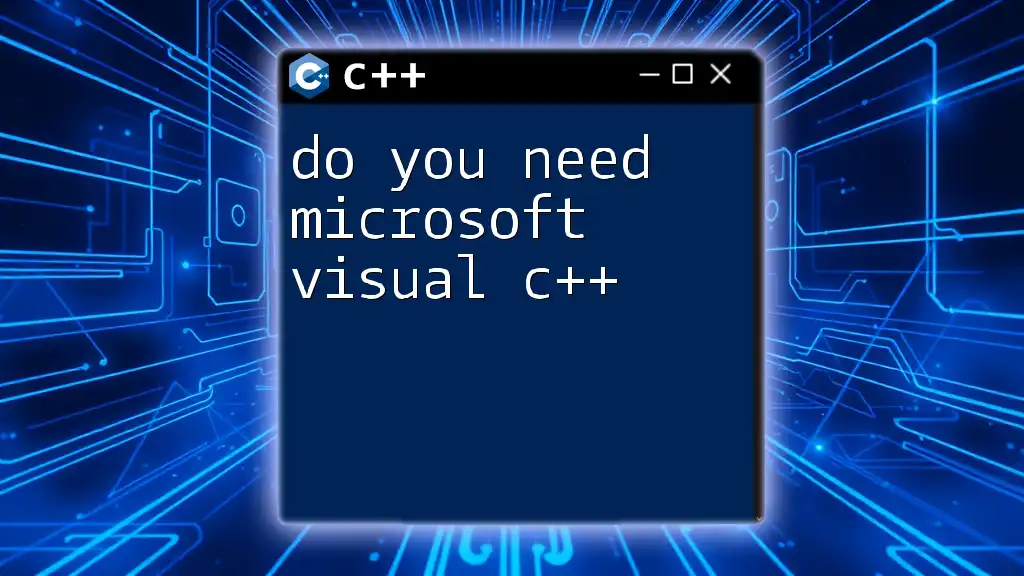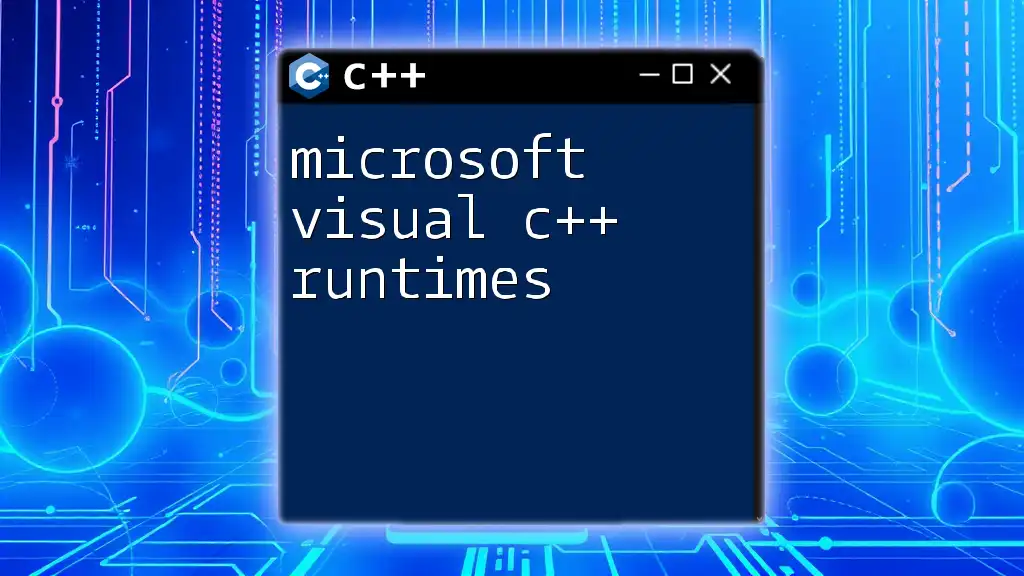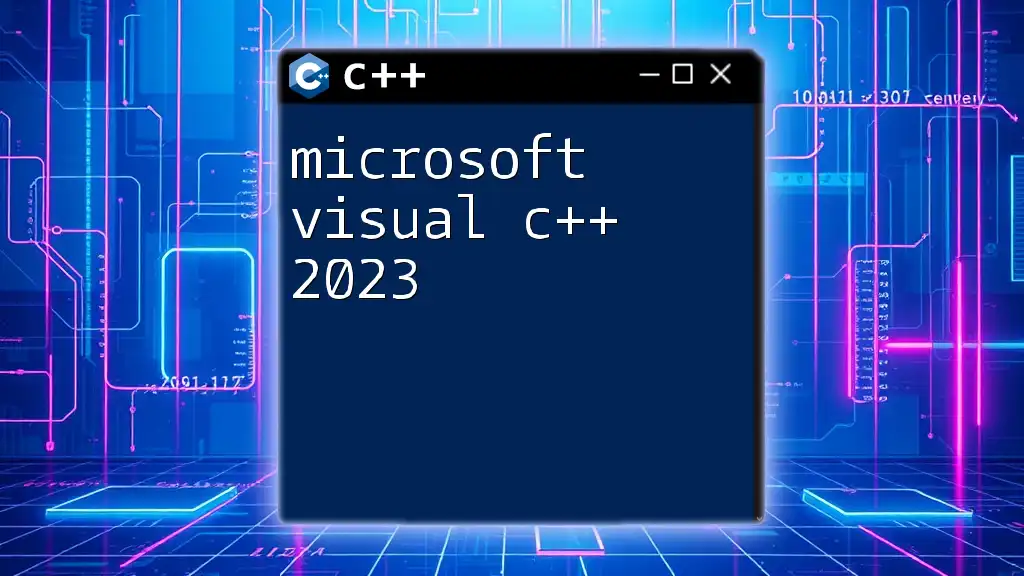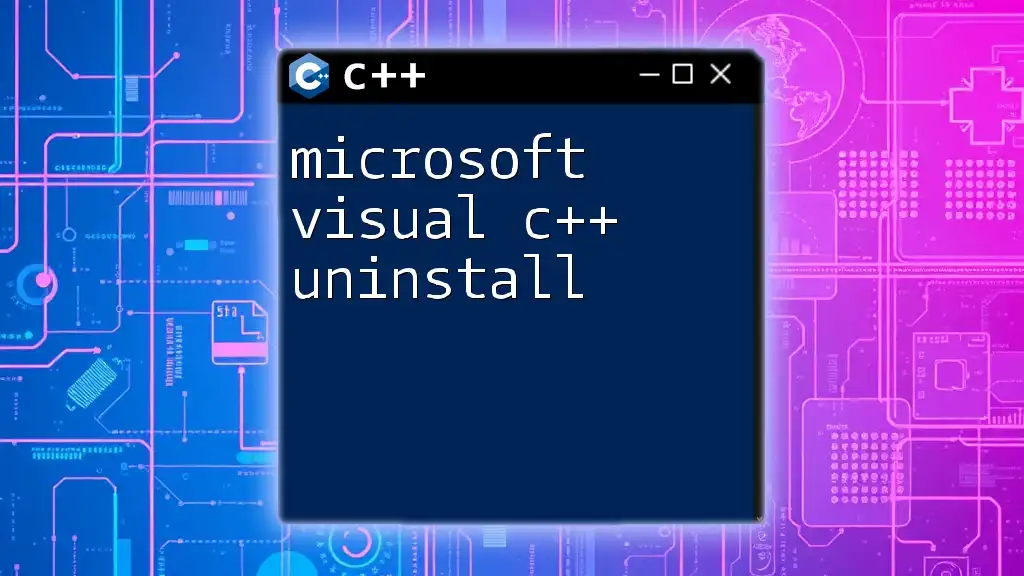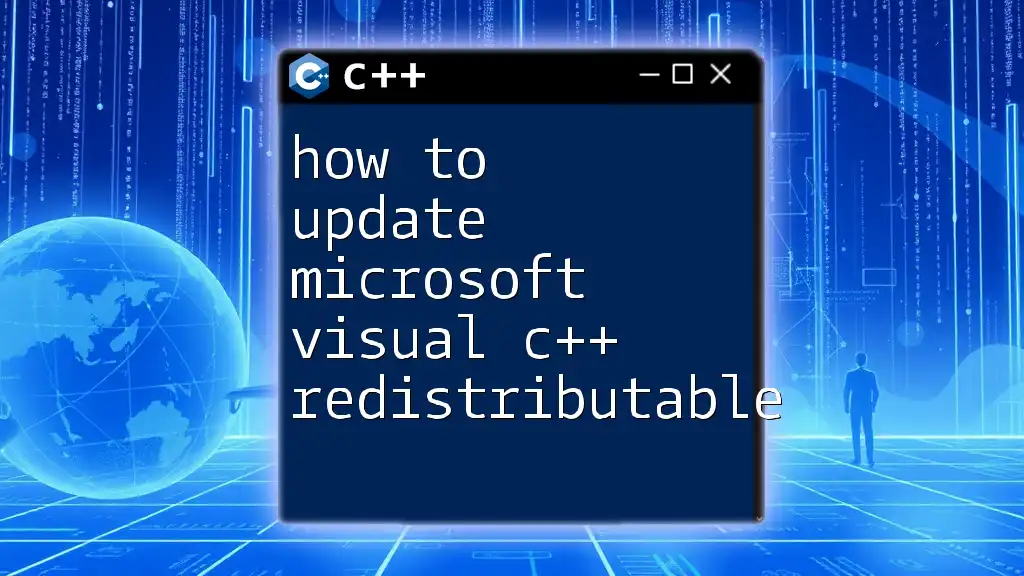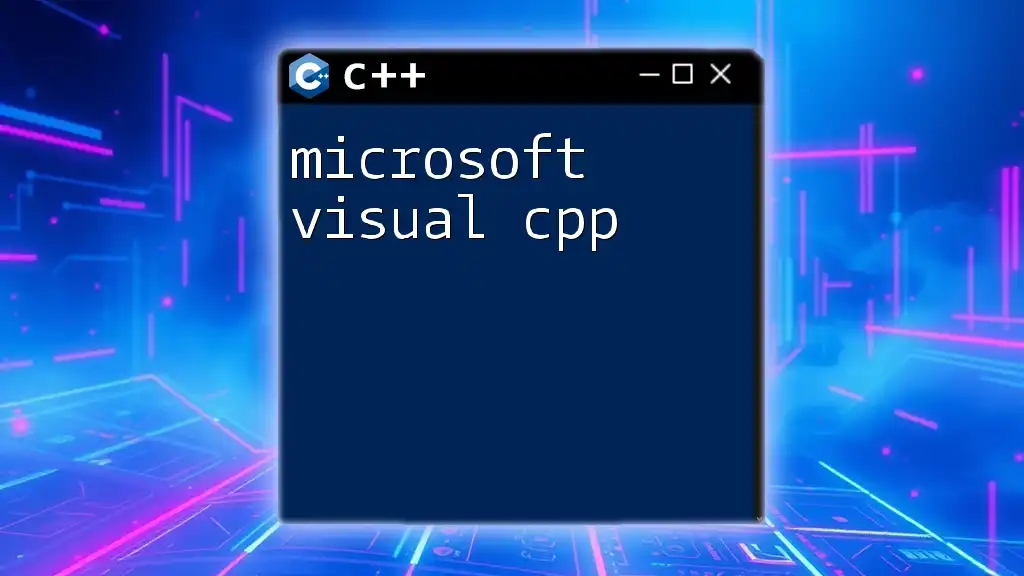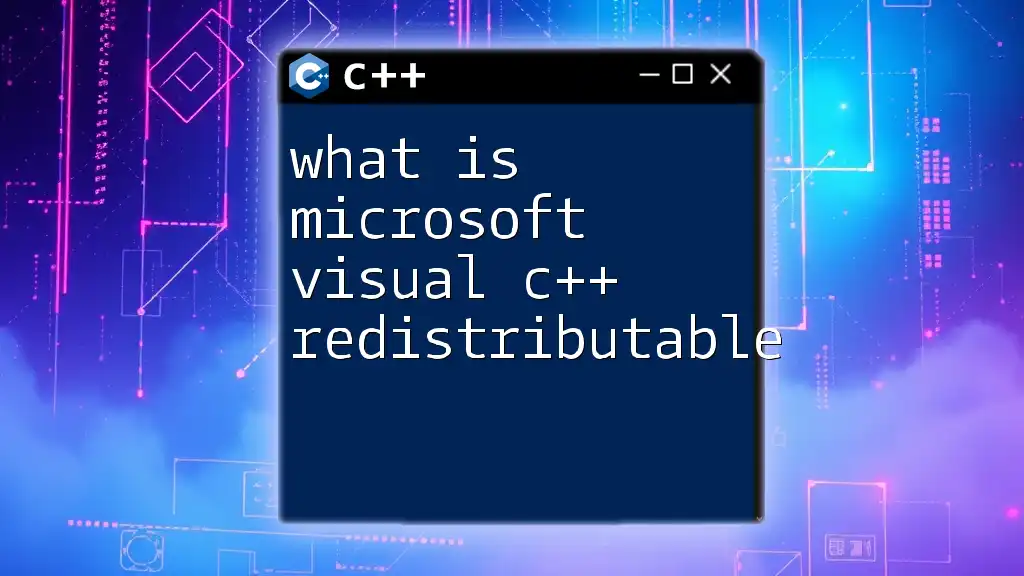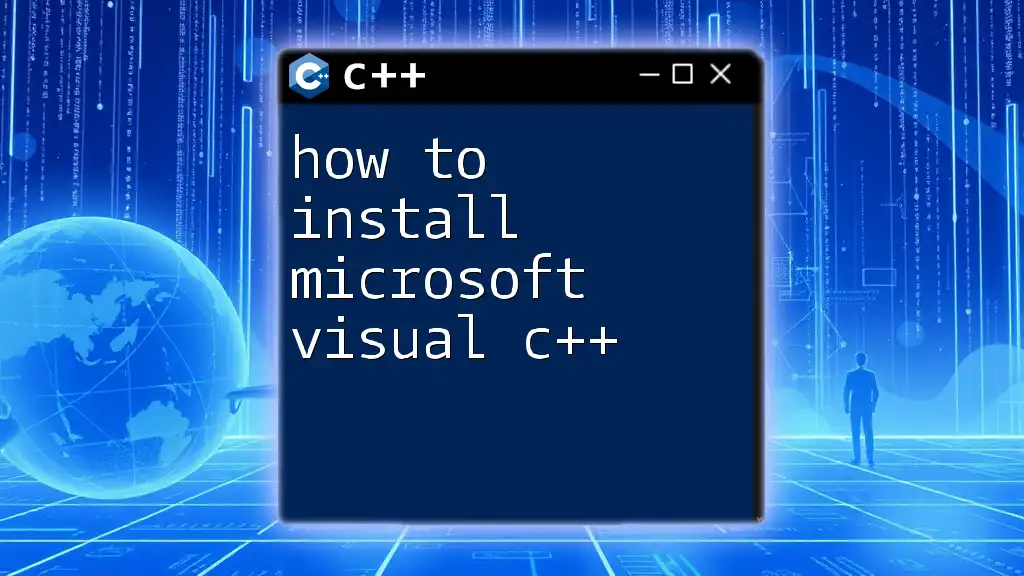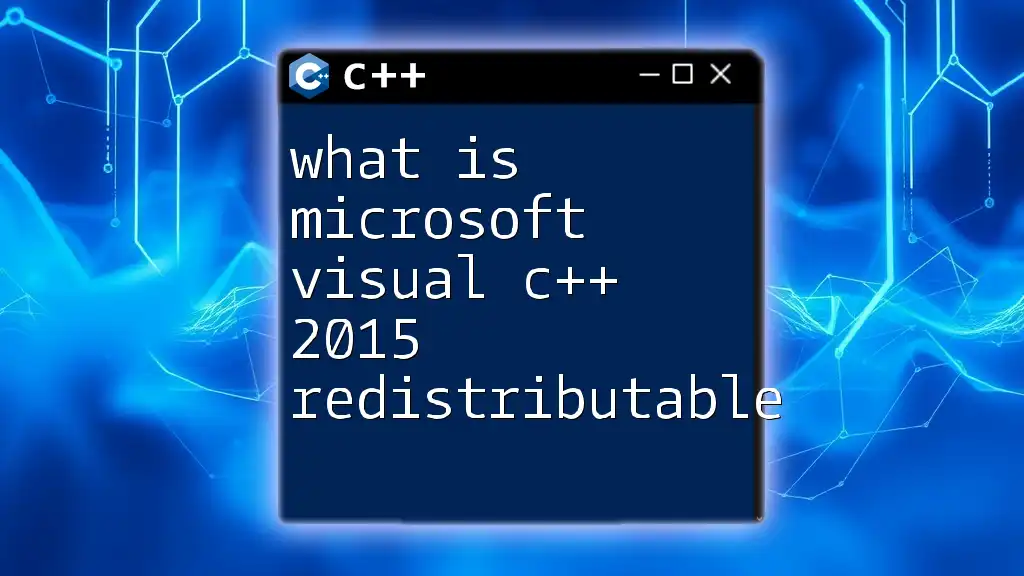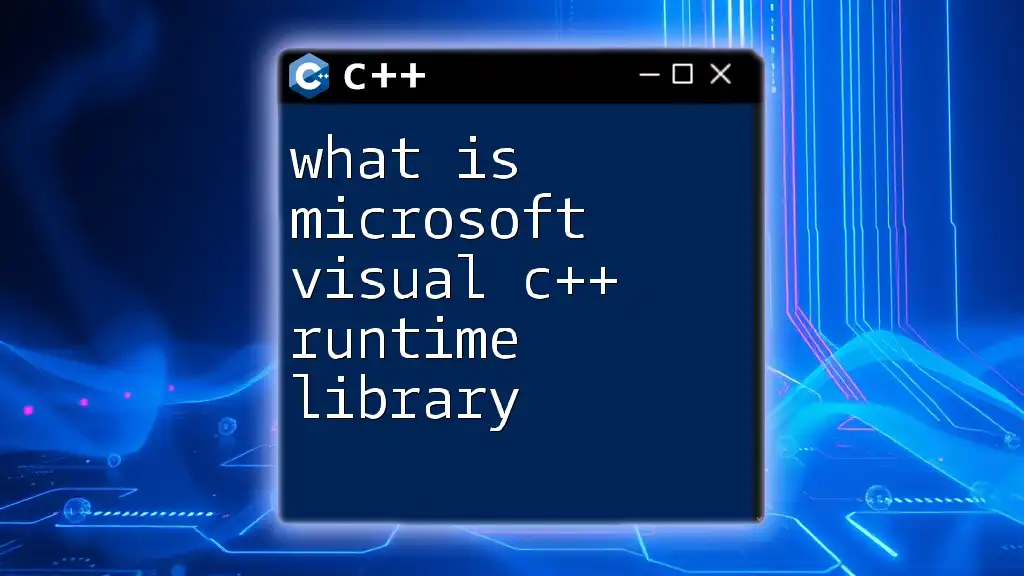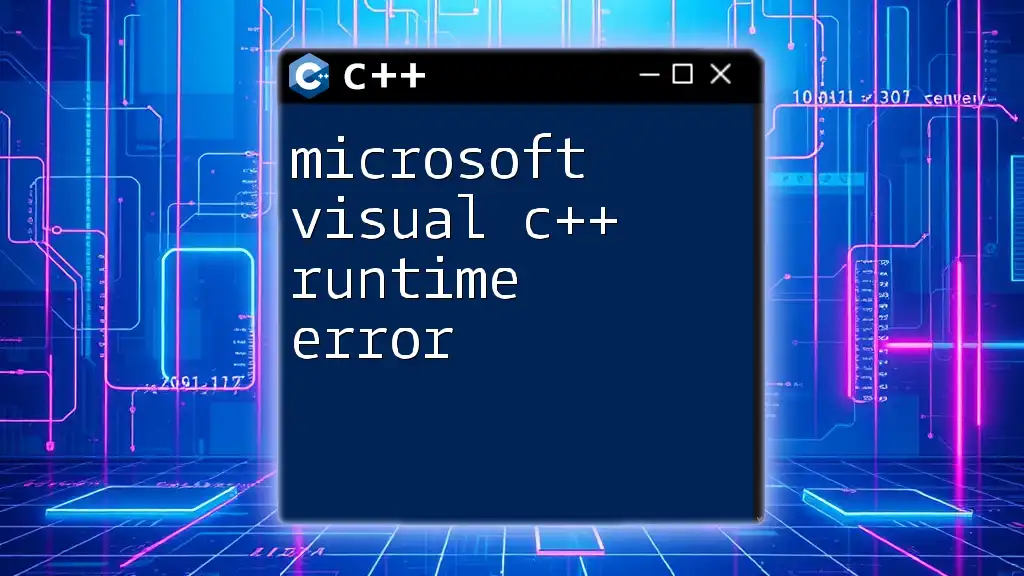Yes, Microsoft Visual C++ is often recommended for compiling and running C++ code due to its robust features and integration with the Windows development environment.
Here's a simple example of a C++ program that prints "Hello, World!" to the console:
#include <iostream>
int main() {
std::cout << "Hello, World!" << std::endl;
return 0;
}
What is Microsoft Visual C++?
Understanding Microsoft Visual C++
Microsoft Visual C++ (MSVC) is a powerful integrated development environment (IDE) designed explicitly for C++ programming. It stands out due to its comprehensive feature set, including time-saving tools and libraries that streamline the development process for Windows applications. Leveraging MSVC allows developers to write code efficiently while focusing on software performance and security.
Components of Microsoft Visual C++
MSVC consists of several key components:
- Visual Studio IDE: The primary interface for writing and managing C++ projects. It offers a user-friendly environment with customizable options to enhance productivity.
- Built-in Libraries: These libraries include the Standard Template Library (STL) and other essential components that facilitate rapid application development.
- Debugging and Profiling Tools: Enhanced debugging capabilities make it easier to troubleshoot and optimize code. MSVC offers visual debugging tools and performance analyzers to ensure your application runs at its best.
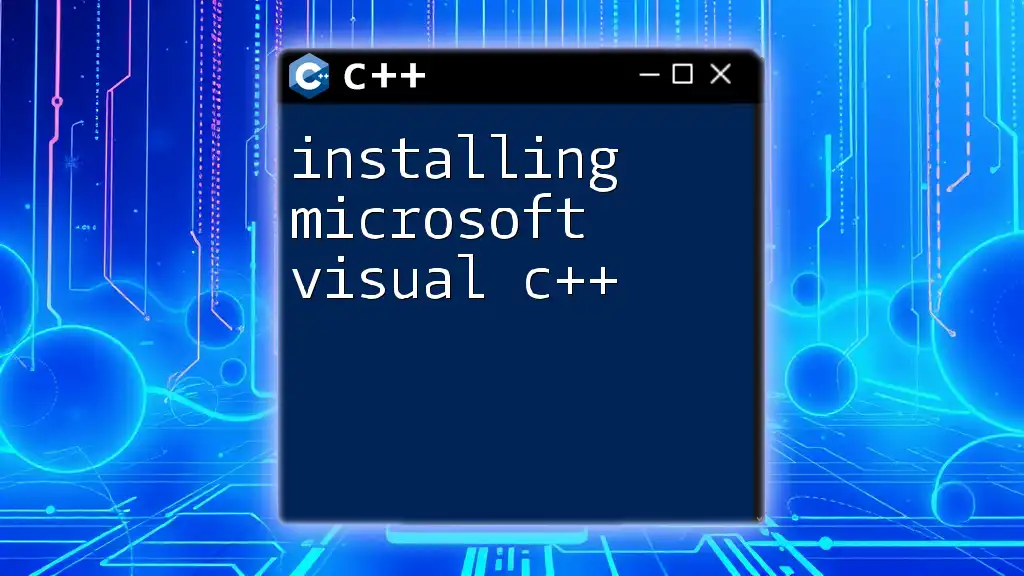
Do I Need Microsoft Visual C++?
Evaluating Your C++ Development Needs
The necessity of Microsoft Visual C++ greatly depends on the nature of your projects. If you're developing applications for the Windows platform, MSVC is often the preferred choice due to its optimization for Windows APIs and ease of integration. Conversely, if you're looking to develop cross-platform applications or target different operating systems, it may be wise to consider your alternatives.
Comparing Microsoft Visual C++ with Other Compilers
When weighing the option of do you need Microsoft Visual C++, it's vital to compare it with other popular C++ compilers like GCC and Clang. Each compiler has unique strengths and weaknesses:
- Microsoft Visual C++: Best for native Windows applications, with robust development tools.
- GCC: Excellent for cross-platform development with vast community support.
- Clang: Known for fast compilation and comprehensive error messages, preferred for certain modern C++ features.
Pros and Cons of Using Microsoft Visual C++
- Pros:
- Seamless integration with Windows development.
- High-quality debugging tools.
- Support for modern C++ standards.
- Cons:
- Primarily locked to the Windows platform.
- Can have a steep learning curve for newcomers.
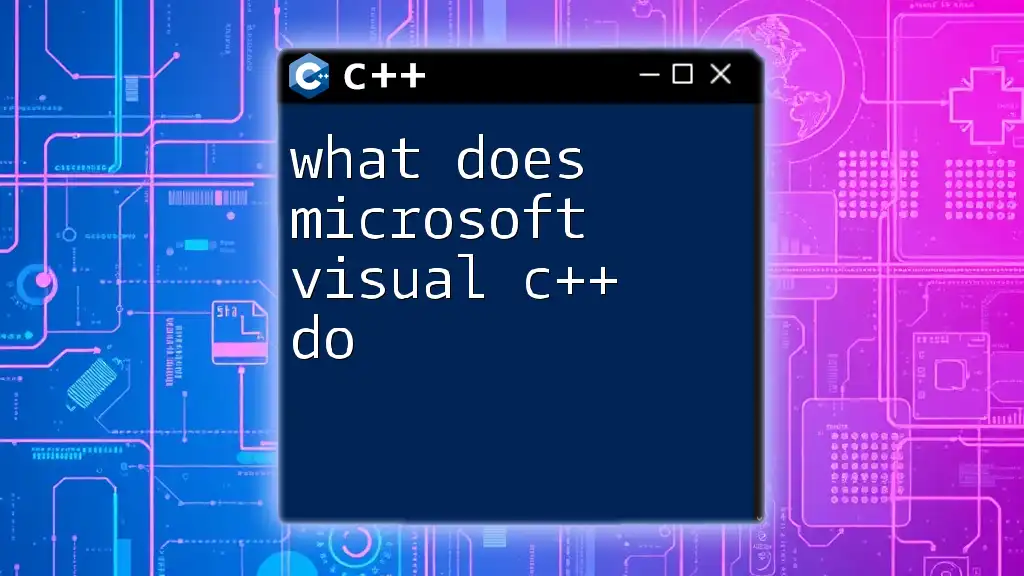
Benefits of Using Microsoft Visual C++
Enhanced Development Environment
One of the primary advantages of using MSVC is its rich development environment. The Visual Studio IDE is equipped with numerous features that streamline coding:
-
IntelliSense: Provides context-aware code suggestions, which can significantly speed up programming and reduce syntax errors. For example, as you type function names, IntelliSense offers real-time autocompletions and parameter hints.
-
Code Navigation: Easy navigation tools help developers move through large codebases quickly, allowing instant access to definitions or references of functions or classes.
Advanced Debugging Capabilities
Debugging is a crucial aspect of software development, and MSVC excels in this area. The debugging tools provided are intuitive:
- Breakpoints: Set breakpoints in your code to pause execution and inspect the state of your application.
- Watch Windows: Monitor specific variables dynamically while stepping through your code.
For example, a simple debugging routine may look like this in your code:
#include <iostream>
int main() {
int a = 5;
int b = 10;
int sum = a + b; // Set breakpoint here
std::cout << "Sum: " << sum << std::endl;
return 0;
}
At the breakpoint, you can investigate the values of `a`, `b`, and `sum`, helping to ensure everything functions as expected.
Optimized Performance for Windows Applications
MSVC provides tools that optimize the performance of Windows applications. The following features enhance performance:
-
Compiler Optimizations: MSVC includes a range of optimizations that enhance execution speed and reduce memory usage specific to Windows applications.
-
Integration with Windows APIs: Direct access to Windows functionalities allows for smooth performance in applications designed to run on Windows platforms.
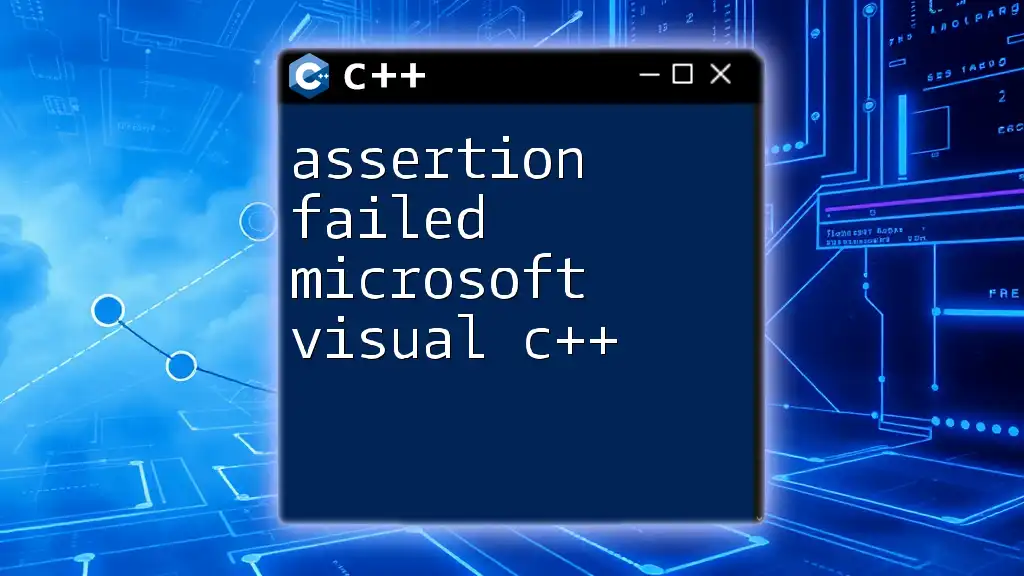
Limitations of Microsoft Visual C++
Platform Dependency
While Microsoft Visual C++ is excellent for Windows development, it’s vital to note its platform dependency. Applications built with MSVC may face challenges when you attempt to compile them on non-Windows operating systems. For developers aiming to create applications that need to run on multiple platforms, this can be a significant limitation.
Learning Curve
Another aspect to consider is the learning curve. Beginners might find MSVC initially overwhelming due to its vast array of functionalities. However, there are numerous resources available to help ease this transition:
- Online tutorials: Many platforms offer courses dedicated to MSVC.
- Documentation: The comprehensive MSDN library provides detailed guidance on all features of MSVC.
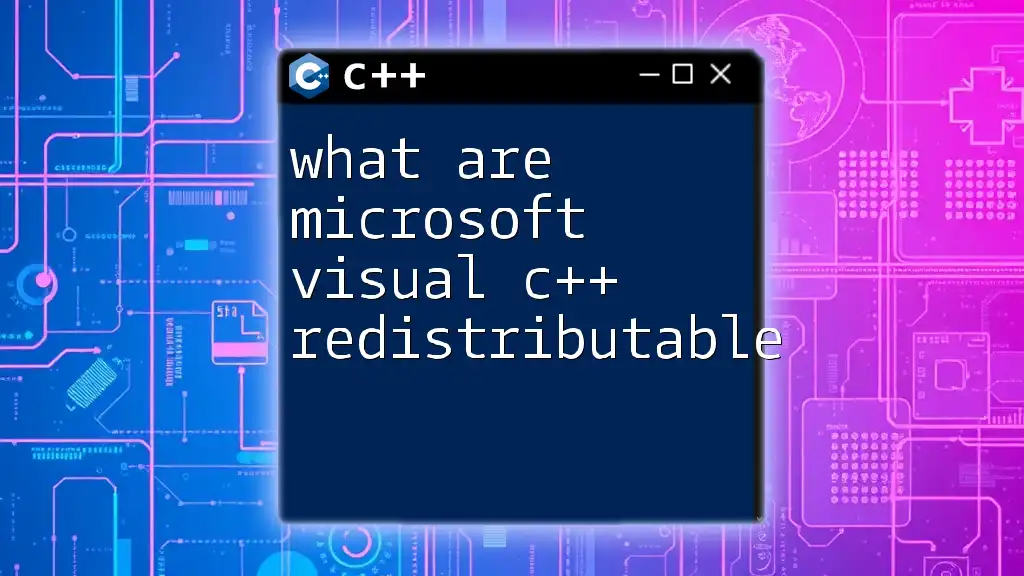
Alternatives to Microsoft Visual C++
Free and Open Source Compilers
If you are evaluating "do you need Microsoft Visual C++," you might also look into free alternatives such as GCC and Clang. Both compilers are extensively used in the developer community and come with plethora of resources for learning and troubleshooting.
- GCC: Known for its stability and cross-platform capabilities, making it ideal for diverse development workflows.
- Clang: Renowned for its compiler speed and excellent error messages, making it user-friendly, especially for those learning C++.
Cross-Platform Development Options
For developers focused on cross-platform compatibility, tools like CMake or frameworks like Qt can help streamline the development process. These options allow developers to maintain a single codebase while also supporting various operating systems.
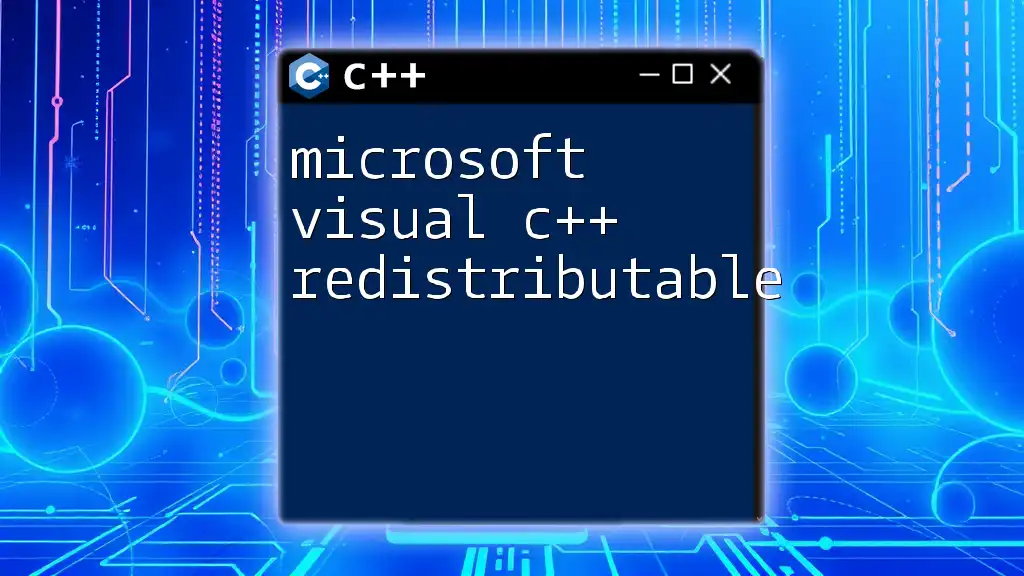
Making the Decision
When to Choose Microsoft Visual C++
Deciding to use MSVC should depend on your project requirements. If you are building applications specifically for Windows and seek a feature-rich environment with powerful debugging capabilities, then Microsoft Visual C++ is the right choice. Furthermore, if you are already familiar with the Microsoft ecosystem, it will likely provide a smoother development experience.
Making the Transition from Another Compiler
Should you decide to transition to Microsoft Visual C++, you'll want to follow some best practices:
- Familiarize yourself with the Visual Studio interface.
- Import existing projects into Visual Studio, adjusting any platform-specific configurations.
For instance, setting up a new project can be as simple as:
// Sample code for creating a simple console application in a Visual Studio project
#include <iostream>
int main() {
std::cout << "Hello, Microsoft Visual C++!" << std::endl;
return 0;
}
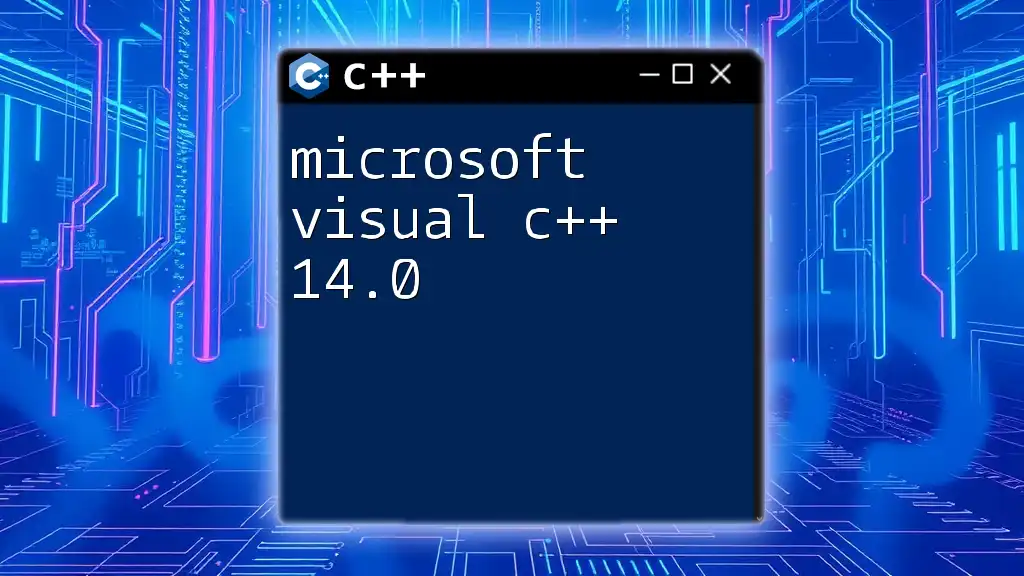
Conclusion
In summary, do you need Microsoft Visual C++ ultimately boils down to your specific development needs and goals. Considering the benefits, limitations, and available alternatives will guide you in making the best choice for your programming projects. Whether you decide to dive into Microsoft Visual C++ or explore other compilers, ensuring that your tools align with your objectives will ultimately enhance your development experience.

